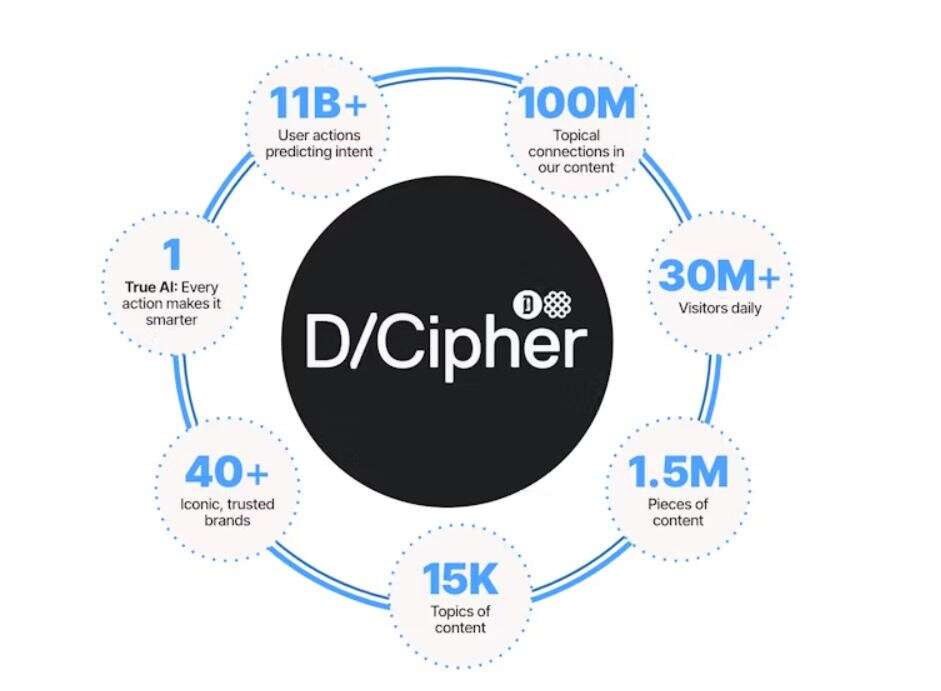
The largest US digital and print publisher Dotdash Meredith may have unlocked the door to the future profitability of journalism on the open web.
It has reported gravity-defying results for the first quarter of 2024 with digital revenue up 13% to $209m, more than offsetting a 10% decline in print revenue. The results announcement from parent company IAC, which comes as US economic growth cooled to 1.6% in the first quarter, suggest publishers may not need third-party cookies on Google’s Chrome browser to be able to sell programmatically-served advertising at a premium.
Dotdash Meredith was formed in 2021 when online publisher Dotdash bet $2.7bn on being able to better leverage the audience of legacy magazine giant Meredith. The latest figures suggest that bet is starting to pay off thanks to an ad-tech solution developed in-house called D/Cipher.
Dotdash Meredith’s digital revenue growth comes at a time when most publishers are losing ground to video-led social media platforms and search. Last year, online advertising for UK magazine brands fell 13.7%. And last month media consultant Matthew Scott Goldstein warned in Press Gazette that publishers are facing the prospect of significant revenue decline caused by AI-driven search and changes in the advertising ecosystem.
Dotdash Meredith claims a monthly audience of 200 million, which it says makes it the largest online and print publisher in the US. Its brands include People, Entertainment Weekly, Verywell, Investopedia, Food and Wine and Better Homes and Gardens. It is focused around lifestyle verticals which ally closely with where people are spending money. Much of its online content is intent-based, providing readers with guides to help them make good spending decisions.
What is Dotdash Meredith’s cookie-less targeting tool D/Cipher?
Ad-targeting tool D/Cipher was launched by Dotdash Meredith in May 2023. It is technology which allows the publisher to sell advertising at a premium across its entire online audience, not just the small minority who have accepted personalisation cookies.
Most premium programmatic advertising is currently driven by cookies on Google’s Chrome browser, which allow publishers to serve advertising based on the browsing history of readers. Google has said it will switch these cookies off in Q1 2025, replacing them with its own Sandbox technology.
D/Cipher claims to offer advertisers more than double the click-through rate as compared with cookie-based audience targeting.
Using data from the Dotdash Meredith network, and shared via a deal with Amazon, D/Cipher is able to serve readers with relevant advertising selected in realtime based on their interests without the need for them to accept cookies.
Dotdash Meredith claims to analyse billions of reader interactions with content across its 40 online brands to ensure they are served with the most effective advertising.
As it announced its Q1 2024 results, Dotdash Meredith also revealed a deal with OpenAI which could further improve its ad-targeting technology.
Deal with OpenAI could fuel next stage of growth
Dotdash Meredith has licensed its content to help train OpenAI’s large language model ChatGPT and its content will also be surfaced with attribution and a link in ChatGPT’s answers.
As part of the deal, Dotdash Meredith will also get improved access to OpenAI technology.
In his letter to shareholders, chief executive Joe Levin said: “OpenAI will partner with Dotdash Meredith to build out Dotdash Meredith’s D/Cipher intent-targeting advertising solution – a first of its kind partnership that will enhance D/Cipher’s targeting technology with AI-powered capabilities and offer superior ad performance in a coming cookie-less world.
“We view this partnership as confirmation of both the value of Dotdash Meredith’s content and the opportunity resident in D/Cipher’s capabilities. We’re pleased to see OpenAI leading the AI landscape and making clear its commitment to building a trustworthy and reliable internet for the future.
“Some of the large incumbent technology companies may fight this reality for a bit, empowered in the near-term by dominant market share in other categories, but I expect most will eventually follow OpenAI’s lead, driven by either reason, reputation, litigation or regulation.”
In November 2023 The Guardian launched a contextual advertising solution called Guardian Light which, like D/Cipher, works without the need for third-party cookies.
Email pged@pressgazette.co.uk to point out mistakes, provide story tips or send in a letter for publication on our "Letters Page" blog
